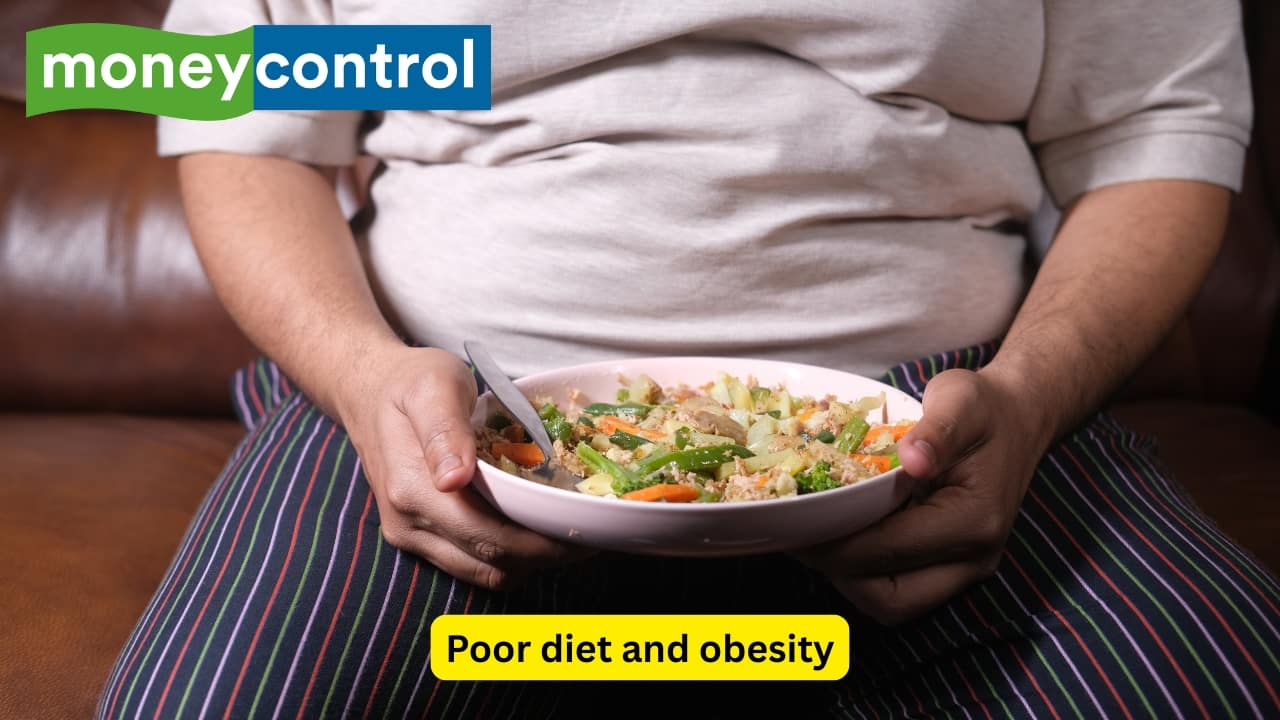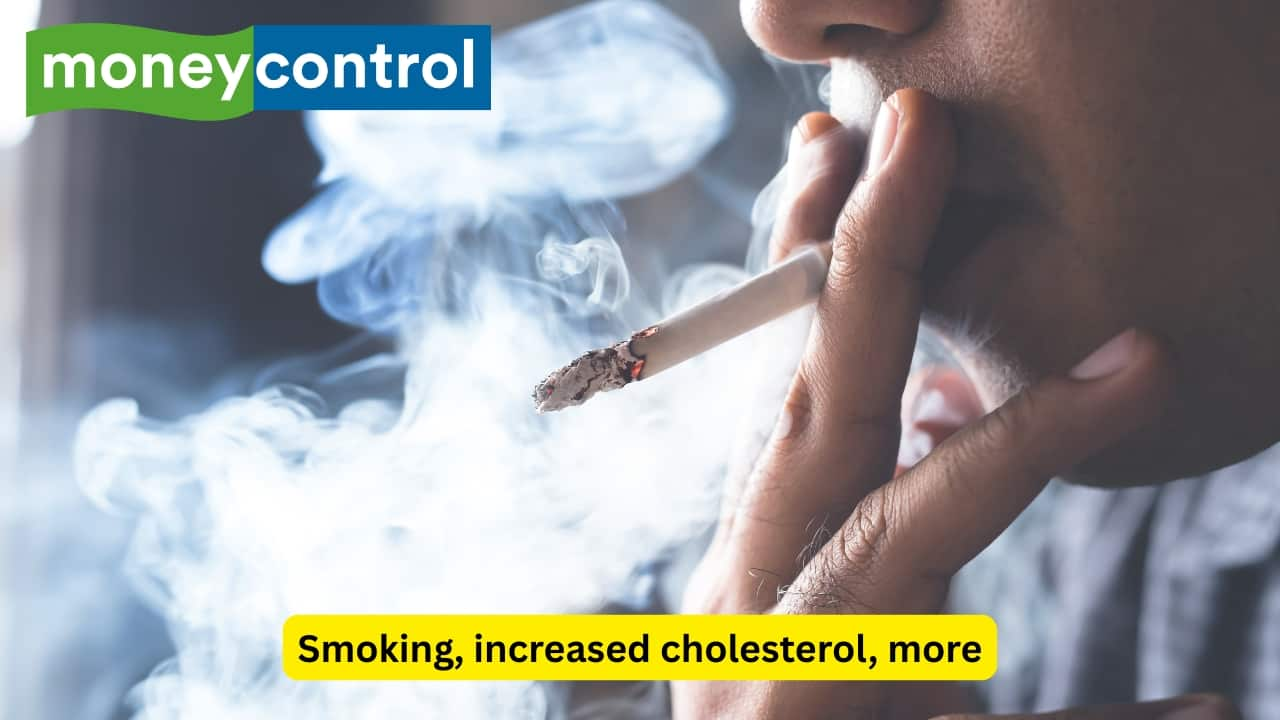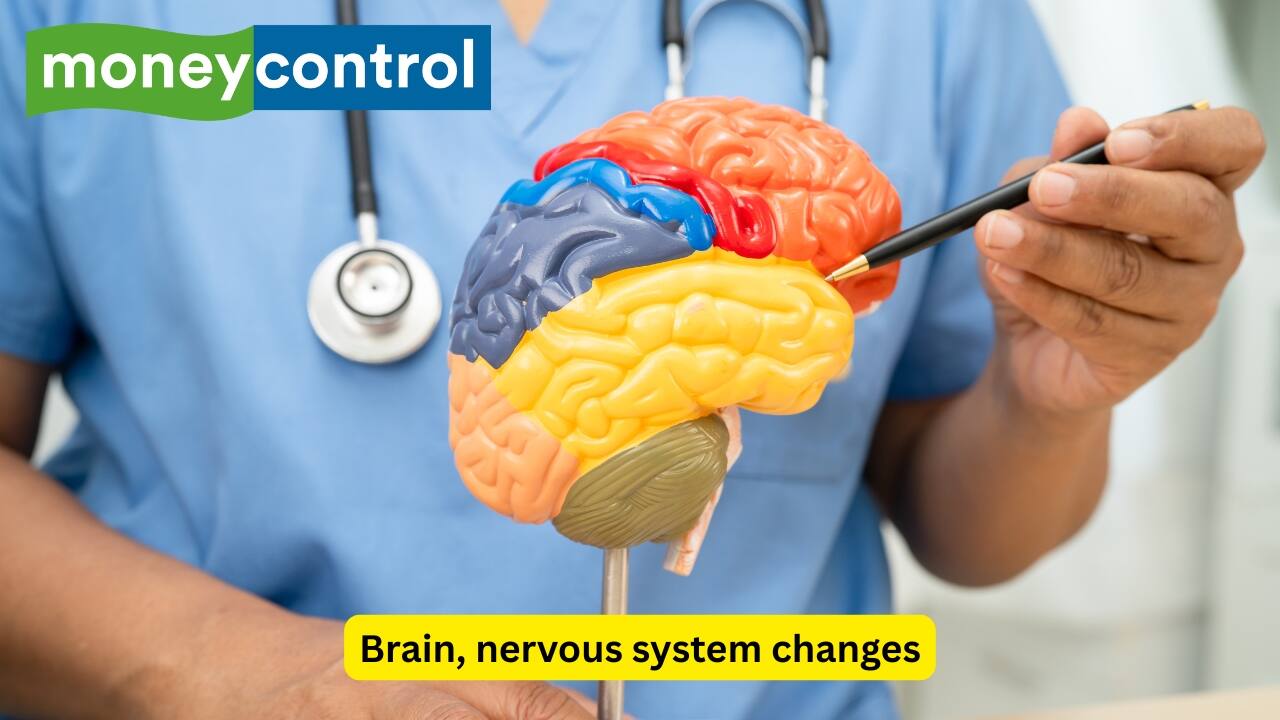Your heart at risk: The hidden link between psychological stress and heart disease
Psychological stress significantly contributes to cardiovascular diseases, comparable to traditional risk factors like smoking and hypertension. Chronic and acute stress can trigger heart events, promote unhealthy habits, and alter body physiology.
1/10

The cardiovascular impact
Psychological stress has become quite prevalent, and while its effects on the body may be sometimes be overlooked, it has a strong connection to the incidence of cardiovascular diseases (CVD), and is comparable to the usual known risk factors like smoking. (Image: Canva)
Psychological stress has become quite prevalent, and while its effects on the body may be sometimes be overlooked, it has a strong connection to the incidence of cardiovascular diseases (CVD), and is comparable to the usual known risk factors like smoking. (Image: Canva)
2/10

Multiple risk factors
There may be multiple factors that contribute to stress in daily life, like sudden disturbing life events and socioeconomic problems, along with psychiatric diseases, and these have been found to have a correlation with diseases of the heart and increased mortality. (Image: Canva)
There may be multiple factors that contribute to stress in daily life, like sudden disturbing life events and socioeconomic problems, along with psychiatric diseases, and these have been found to have a correlation with diseases of the heart and increased mortality. (Image: Canva)
3/10

Acute coronary syndromes
In individuals who are vulnerable, any acute stress like a natural disaster or any sudden emotional shock may trigger cardiovascular events. Such stressors may influence the risk of acute coronary syndromes like ST-elevation myocardial infarction and non-ST-elevation myocardial infarction. (Image: Canva)
In individuals who are vulnerable, any acute stress like a natural disaster or any sudden emotional shock may trigger cardiovascular events. Such stressors may influence the risk of acute coronary syndromes like ST-elevation myocardial infarction and non-ST-elevation myocardial infarction. (Image: Canva)
4/10

Poor diet and obesity
Long term stress may lead to unhealthy behaviours, and may also alter the physiology of the body. Poor diet is a common habit seen in those who have been dealing with stressful situations for extended periods. Stress may also promote obesity, which is a risk factors for by itself for CVD. (Image: Canva)
Long term stress may lead to unhealthy behaviours, and may also alter the physiology of the body. Poor diet is a common habit seen in those who have been dealing with stressful situations for extended periods. Stress may also promote obesity, which is a risk factors for by itself for CVD. (Image: Canva)
5/10

Smoking, increased cholesterol, more
It has also been seen that the influence of stress of cardiovascular health is comparable to traditional risk factors like smoking, deranged lipid profile (abnormally elevated cholesterol or fat levels), and increased blood pressure levels (hypertension), along with diabetes. (Image: Canva)
It has also been seen that the influence of stress of cardiovascular health is comparable to traditional risk factors like smoking, deranged lipid profile (abnormally elevated cholesterol or fat levels), and increased blood pressure levels (hypertension), along with diabetes. (Image: Canva)
6/10

Brain, nervous system changes
Chronic stress may begin to affect the brain and the autonomic nervous system, which can further influence immune and inflammatory responses. Constant activation of such stress circuits may disturb the hypothalamic-pituitary-adrenal axis (a system that regulates the body’s stress response). (Image: Canva)
Chronic stress may begin to affect the brain and the autonomic nervous system, which can further influence immune and inflammatory responses. Constant activation of such stress circuits may disturb the hypothalamic-pituitary-adrenal axis (a system that regulates the body’s stress response). (Image: Canva)
7/10

Inflammation, vascular damage
Stress-associated pathways may have an effect on arterial inflammation, and increase the rate of atherosclerosis (plaque formation in the blood vessels), which can make the plaque vulnerable to rupturing. This can cause structural damage to the vasculature. (Image: Canva)
Stress-associated pathways may have an effect on arterial inflammation, and increase the rate of atherosclerosis (plaque formation in the blood vessels), which can make the plaque vulnerable to rupturing. This can cause structural damage to the vasculature. (Image: Canva)
8/10

The coping strategies
It is necessary to learn to deal with stress in a healthy way, without letting it affects physical and mental health. Professional help may be sought, and therapy may prove to be useful for coping up with everyday stressors. Finding ways to unwind after a particularly difficult way is recommended. (Image: Canva)
It is necessary to learn to deal with stress in a healthy way, without letting it affects physical and mental health. Professional help may be sought, and therapy may prove to be useful for coping up with everyday stressors. Finding ways to unwind after a particularly difficult way is recommended. (Image: Canva)
9/10

Creative and social methods
While some prefer using their artistic skills to help relieve stress, like colouring, painting or writing a diary, others may choose to talk to close friends and family, and vent out their feelings. Cognitive behavioural therapy has been found to reduce perceived stress. (Image: Canva)
While some prefer using their artistic skills to help relieve stress, like colouring, painting or writing a diary, others may choose to talk to close friends and family, and vent out their feelings. Cognitive behavioural therapy has been found to reduce perceived stress. (Image: Canva)
10/10

Medication and lifestyle changes
Anti-anxiety drugs or anti-depressants may be prescribed by the healthcare provider, like a psychiatrist. Other forms of coping methods must also be looked into, like yoga, and breathing exercises. It is necessary to abstain from smoking and alcohol, as these can worsen one’s health. (Image: Canva)
Disclaimer: This article, including health and fitness advice, only provides generic information. Don’t treat it as a substitute for qualified medical opinion. Always consult a specialist for specific health diagnosis.
Anti-anxiety drugs or anti-depressants may be prescribed by the healthcare provider, like a psychiatrist. Other forms of coping methods must also be looked into, like yoga, and breathing exercises. It is necessary to abstain from smoking and alcohol, as these can worsen one’s health. (Image: Canva)
Disclaimer: This article, including health and fitness advice, only provides generic information. Don’t treat it as a substitute for qualified medical opinion. Always consult a specialist for specific health diagnosis.
Discover the latest Business News, Budget 2025 News, Sensex, and Nifty updates. Obtain Personal Finance insights, tax queries, and expert opinions on Moneycontrol or download the Moneycontrol App to stay updated!





